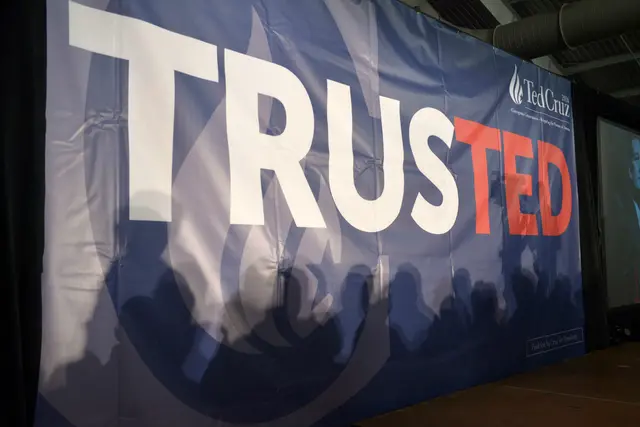For Republican Party establishment unnerved by Donald Trump's thumping victory on Tuesday night, the question of which candidate from the establishment camp will be the next to drop out becomes increasingly relevant.
Since last summer, Trump, the wealthy New York developer infamously well-known for his blunt language and dismissal of "political correctness", had long been benefiting from an unusually crowded GOP establishment lane that once included 10 former or sitting U.S. governors and five former or current U.S. senators.
As Trump continued to consolidate supports from disgruntled Republican voters, the clarity among the mainstream candidates struggling to challenge Trump continued to be absent.
"I think that a lot of Republican leaders were hoping that after New Hampshire a number of candidates would drop out," said Kyle Kondik, expert on American campaigns and elections at the University of Virginia. "There still hasn't been the kind of consolidation in what people call the establishment lane of this race."
After the New Hampshire primary, former chairwoman of Hewlett-Packard Carly Fiorina and New Jersey Governor Chris Christie announced suspension of their campaigns, with seven candidates still competing in the GOP field.
While retired neurosurgeon Ben Carson and former Virginia Governor Jim Gilmore, far at the bottom of the polls, were not really factors in the election at this point, the dropping out of any of the rest field, filled with mainstream candidates with the exception of Trump and anti-establishment candidate Texas Senator Cruz, bears significance that would reshape the GOP nomination contest.
After a humiliating defeat in the Iowa caucuses, Trump won the GOP primary in New Hampshire with a staggering 35.3 percent of votes, trailed by Ohio Governor John Kasich, Senator Ted Cruz, former Florida Governor Jeb Bush and Florida Senator Marco Rubio, a cluster of candidates whose polling number fails to stand out with a large margin.
"It is important to note that if you would combine Christie, Kasich, and Bush, how they did in New Hampshire, they got about equal or maybe even a little bit better than what Trump got," said Kondik. "So there was a demand in New Hampshire for that kind of candidate, a kind of establishment-oriented governors."
However, there's just too many of the mainstream candidates in order to actually compete with Trump, Kondik added.
So far, not a single mainstream candidate from the Republican Party could consolidate traditional support within the party.
Rubio entered the New Hampshire with strong momentum and was once widely accepted as a potential alternative to Trump by party establishment after a surprisingly third-place in the Iowa caucuses. However, after his stumble in Saturday's primary debate in which he was heavily criticized by rivals for sticking heavily to talking points all the time, Rubio's popularity with New Hampshire primary voters was damaged and now he also has to fight for survival in the race.
After landing a tie for third place with Cruz, the winner of the Iowa caucuses, Bush touted his showing as a win and claimed that the New Hampshire primary had "reset things" by proving that he was still a viable candidate.
However, Bush's claim was not necessarily a convincing one, given the fact that his campaign and Right to Rise, a Super-PAC supporting him, had lavished about 35 million U.S. dollars in the New Hampshire primary while Cruz spent a mere 1 million dollars.
For Kasich, though the second-place finish in the New Hampshire was a vital winning for him, his success in New Hampshire came at a costly price. Unlike other states, the New Hampshire primary allowed voters to vote as "Undeclared" ones and thus could vote in either party primary. To attract moderate voters in both parties, Kasich had long portrayed himself as a moderate.
For states beyond New Hampshire, in which Republican voters tend to be more conservative, how Kasich would succeed in attracting those voters remained unknown.
 简体中文
简体中文





